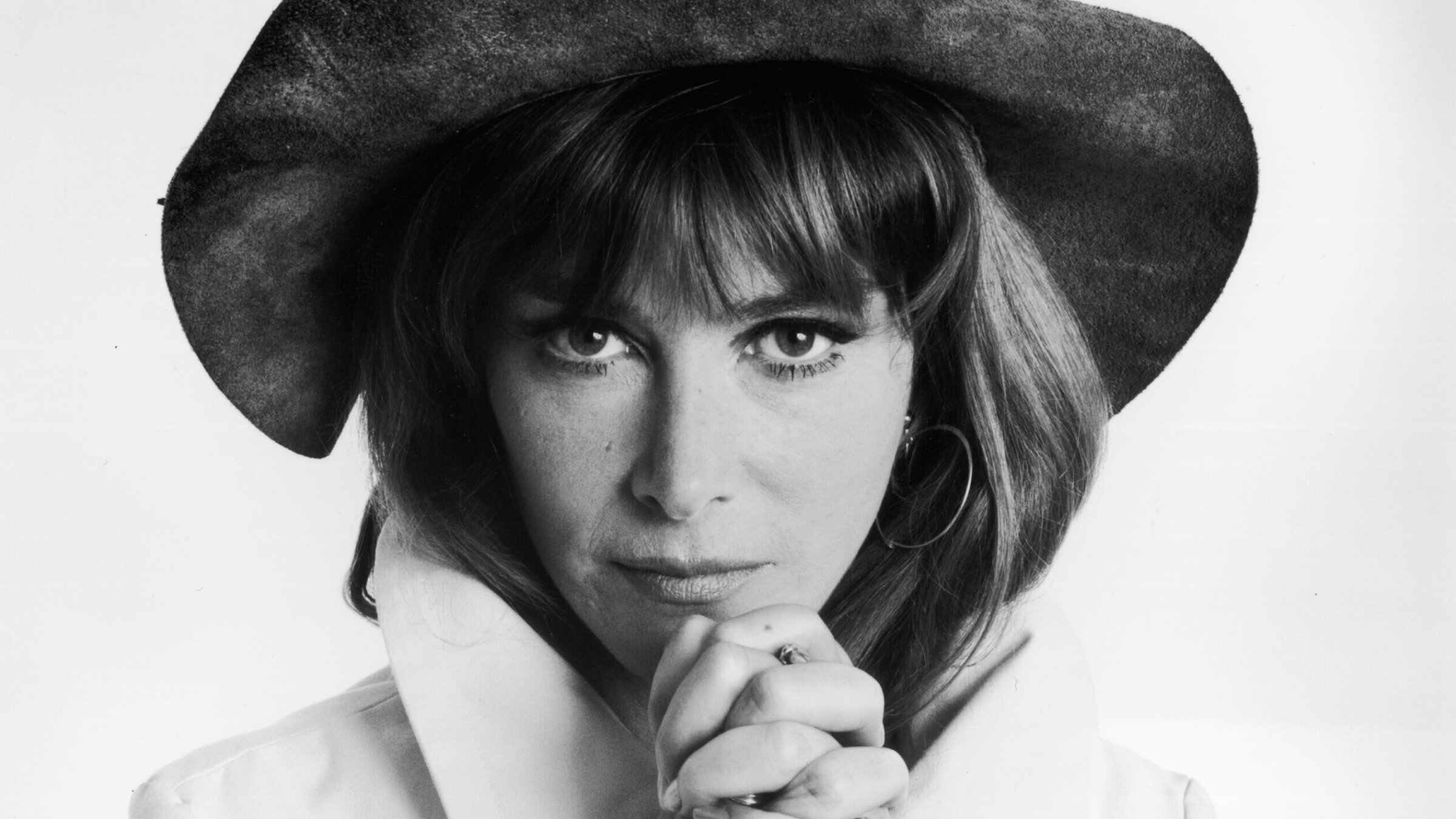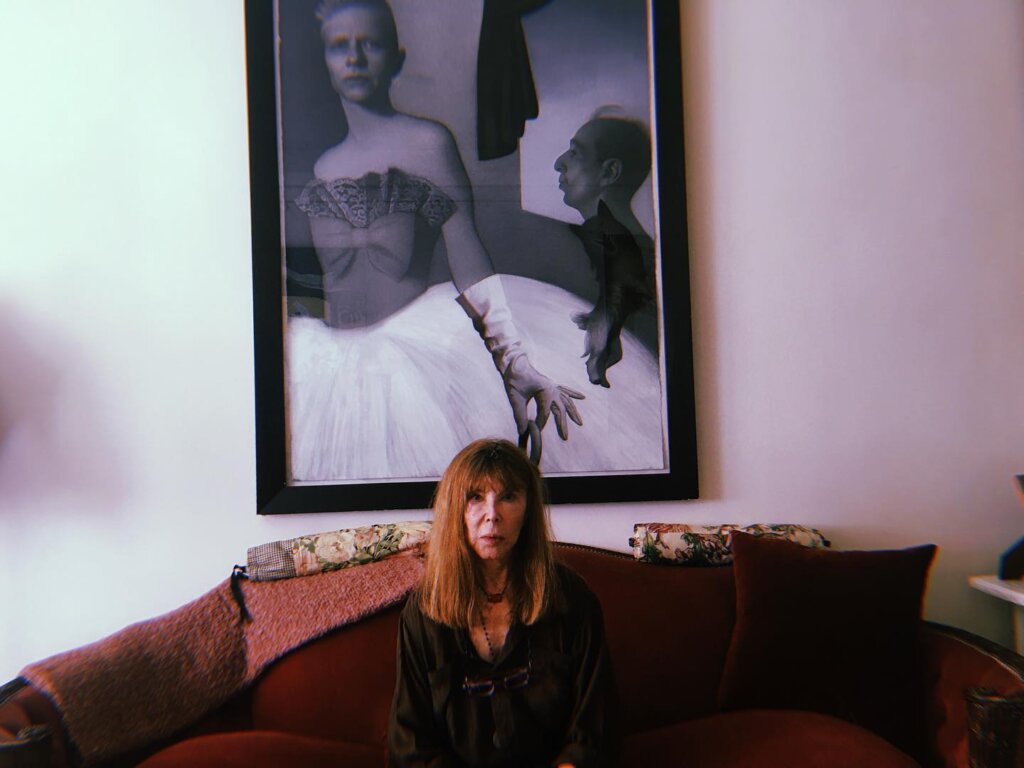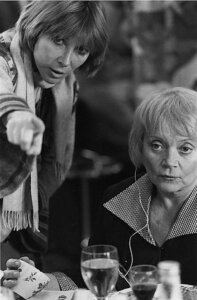Lee Grant is 97-and-a-half and just as fierce as ever
The Oscar winner, who survived the Blacklist to become a preeminent director and actor, knows the secret to her longevity

Lee Grant in 1970. Photo by Jack Robinson/Hulton Archive/Getty Images
Two-time Oscar winner Lee Grant lost 12 years of her career to the Hollywood Blacklist, shut out of the industry just after her film debut in 1951’s Detective Story, which garnered her first Academy Award nomination.
When Grant was able to return to film in 1963, she wound back the clock on her age to make up for lost time. Her exact date of birth, on Wikipedia and a CBS Sunday Morning interview, is tough to pin down, but speaking from her apartment in Manhattan, Grant says she is 97-and-a-half. When a reporter failed to seem appropriately impressed, the legendary filmmaker offered direction.
“Wait a minute, you’re supposed to react to that, kid!” Grant said, laughing. “You’re supposed to say ‘What?! You’re kidding!’ Do your part. You’re supposed to react to that.”
It goes without saying that she looks great, sporting her familiar bangs, and taking time to get the right soft focus for a Zoom conversation.
Grant, whose filmography includes her Oscar-winning turn in 1975’s Shampoo and an Oscar for her 1986 HBO documentary Down and Out in America, about the dispossessed in Reagan’s America, is having a moment. While perhaps best known for her roles in classics like In The Heat of the Night and her Emmy-winning run on Peyton Place, it is her work as a director of over two dozen projects that is coming into focus. In March, her documentaries played as part of the Glasgow Film Festival and, beginning Sept. 30, two of her narrative films, The Stronger and Tell Me a Riddle are being screened at the New York Film Festival.
The films, one a short based on an August Strindberg play set during Christmas and starring Susan Strasberg and Dolores Dorn, the other a feature about an aging Russian Jewish immigrant couple who met as Communist firebrands, don’t have much in common. But one paved the way for the other.
When Joyce Aliason and Alev Lytle, college students studying under writer Tillie Olsen, saw The Stronger, they approached Grant to make a film of Olsen’s O. Henry Award-winning short story, “Tell Me a Riddle,” which they adapted as a screenplay. Grant immediately connected with the story and the main character of Eva, played by Lila Kedrova, who left Russia when Stalin’s reign of terror came for her comrades.
“My whole background was from a blacklisted point of view,” Grant said of her approach to the material.
Tell Me a Riddle contrasts ideals and the excesses of Stalinism. While Grant was never a Communist — and hardly political — her marriage to screenwriter Arnold Manoff, and her eulogy for their friend J. Edward Bromberg, where she blamed his death on his persecution in the Red Scare, led to her own appearance before the House Un-American Activities Committee, where she refused to name names.
“The Communists really were like Jews or Catholics,” Grant said. “People who so deeply believed, and don’t forget they came from the garment industry.”

Grant, born Lyova Haskell Rosenthal, grew up in Manhattan on 148th Street and Riverside Drive. Her father was born in the Bronx to an Orthodox Jewish family and her mother came from Odesa in what was then part of the Russian Empire. When Grant was a child, her mother, Witia, told her how she was sitting on the steps of her home when the Cossacks arrived under orders from the tzar to murder Jews. Though Eva, in Tell Me a Riddle, has nightmares about Stalinist thugs terrorizing her shtetl, Grant is quick to say the two women were very different.
“My mother’s experience could not be farther away,” Grant said. “My mother and my aunt Fremo were models. They were two beauties. They spoke in the way that they saw the people on the movie screens speak, and at that time they spoke slightly English accents, so that they were very beautiful and very affected, and didn’t speak like any Jews I ever knew.”
Witia was glamorous, and a committed stage mom, helping Grant study ballet (she was in George Balanchine’s company) and get into the Neighborhood Playhouse School of the Theatre (where she studied under Sanford Meisner).
“Her whole focus was to create — and she did — to create somebody who never experienced what she experienced,” Grant said.
Grant never encountered Cossacks, but she has a vivid memory of her own brushes with antisemitism. When she was 8 or 9, walking down Convent Avenue with a friend, a nun pointed them out to one of her students. The little girl pursued them saying, “You killed our Lord.” Grant realized then that being a Jew was “not very popular.”
There were times during high school, when she was around Catholic kids, that Grant hid her heritage, but when she was 18, she asserted it. Cast as the understudy for Ado Annie in a traveling production of Oklahoma! Grant’s makeup station was next to an actress who would always go on about “the Jews.” Grant had her father send her a book of Jewish wisdom and placed it next to her. When the actress asked what it was, Grant said, “That’s my religion.” The actress switched her place in the dressing room, but Grant views that moment as the beginning of an internal change.
“It was the kind of thing that made me make documentaries later on,” said Grant. “It was the need to stand with the troops and not to hide anything.”
Grant’s documentaries are marked by their focus on underdogs. Her first, The Willmar 8, followed striking woman bank employees in Minnesota and 1985’s What Sex Am I? is one of the first films to profile transgender people.
With regard to the ongoing actors’ strike, Grant says artists in film and television are in an impossible position, with studios now trying to use artificial intelligence to own performers’ likenesses.
“They can take any image and put it down there and it’s like you could be cartooned out of any reality and that’s one of the dangers in our world today,” Grant said. “That anything can be posted from one group of people to another group of people. And lies can be told freely and believed as the truth. There is no way now of saying ‘Oh that’s not the truth, that’s a lie.’”
This post-truth moment, and the upcoming 2024 election, scares her more than anything she ever faced in her life — and that includes McCarthyism.

“This is McCarthyism, only it’s on a grander scale,” said Grant, who requested to play Roy Cohn’s mother in a 1992 TV movie to “find what the soul of the scorpion was.” (She failed, but thinks Jews who support Donald Trump should remember that he asked “where’s my Roy Cohn,“ desperate for McCarthy’s handmaiden, who sent the Rosenbergs to their deaths.)
She is also dispirited by the attacks on the trans community, whose rights have recently been targeted in red states.
“What is there to attack?” said Grant. “These are people in such turmoil and so searching for who they are, that — not to help, not to say ‘I understand,’ even. Not to say, ‘I’m so relieved that I’m not in your position. That at least I know what sex I am.’ Not to have a heart, it bewilders me.”
Grant, whose mother came from Ukraine, lights a candle every evening as a show of support for the country, and believes that Tell Me a Riddle, with its subtle but sharp attack on Russian autocracy, now works as a rebuke of Putin. She’s beyond grateful that the film is being shown in a new restoration, but says it’s too long. Grant lost her mother during the production, and couldn’t bear to let Kedrova’s Eva, who has terminal cancer, die earlier in the runtime.
When Grant gives her introduction for the films on Sept. 30, she knows she will be speaking as a survivor. The leads of The Stronger and Tell Me a Riddle have passed away.
“It’s very emotionally hard,” Grant said of the speech, “and I’m trying to find my way out of it so that I don’t get up there and just cry, you know? It’s a life. You know, it’s my life.”
Summing up a nearly 80-year career is no easy feat, but Grant is very certain of the key to her longevity: her marriage to a younger man.
“I happen to be married to a little Italian boy,” said Grant, of her producer husband, Joseph Feury. “I’m 97-and-a-half, because I’m with him. And that’s the f—ing truth.”
A message from our Publisher & CEO Rachel Fishman Feddersen

I hope you appreciated this article. Before you go, I’d like to ask you to please support the Forward’s award-winning, nonprofit journalism so that we can be prepared for whatever news 2025 brings.
At a time when other newsrooms are closing or cutting back, the Forward has removed its paywall and invested additional resources to report on the ground from Israel and around the U.S. on the impact of the war, rising antisemitism and polarized discourse.
Readers like you make it all possible. Support our work by becoming a Forward Member and connect with our journalism and your community.
— Rachel Fishman Feddersen, Publisher and CEO






























